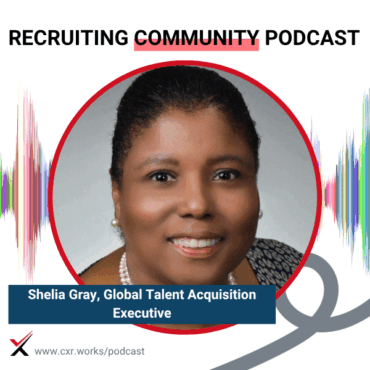
Navigating AI Hype & Culture Shifts in TA
TA expert Shelia Gray joins us from Unleash to unpack AI trends, culture shifts, and how recruiters can lead through chaos—without losing focus.
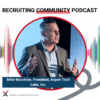 play_arrow
play_arrow
Real-Time Jobs Data and the TA Advantage Cami Grace
 play_arrow
play_arrow
20+ Years at Dell and Beyond: Jennifer Newbill’s Career Crossroads Cami Grace
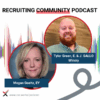 play_arrow
play_arrow
AI Interview Research Cami Grace
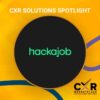 play_arrow
play_arrow
Solutions Spotlight on Hackajob Cami Grace
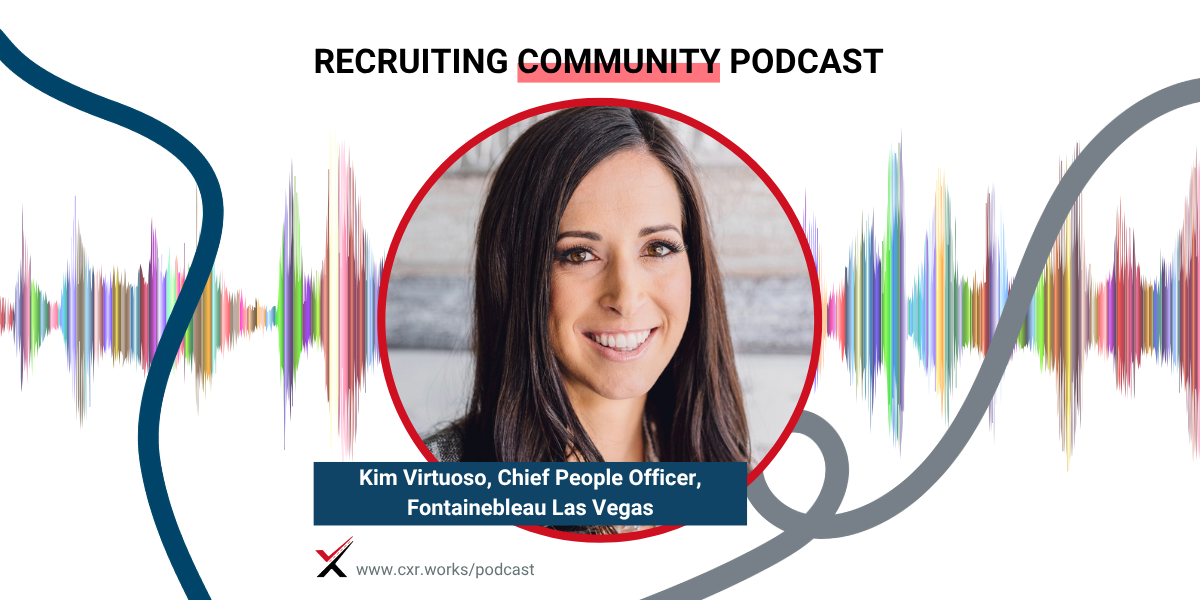
Title:
Scaling to 6,500 Hires and Beyond: AI, Agility, and Talent Strategy at Fontainebleau Las Vegas
Featured Guests:
Kim Virtuoso, Vice President of People and Culture, Fontainebleau Las Vegas
Hosts:
Chris Hoyt, President, CareerXroads
Episode Overview:
Recorded live at the Unleash conference in Las Vegas, this episode features Kim Virtuoso of Fontainebleau Las Vegas, who shares insights from building an HR team and talent strategy from the ground up. She discusses how AI tools like Paradox supported the hiring of 6,500 employees within a three-month window, and how the focus has now shifted to retention, mobility, and business partnership. Kim also explores the evolving role of HR leaders, the importance of internal development, and the need to modernize hiring practices in the hospitality industry.
Key Topics:
Launching Fontainebleau Las Vegas with a three-month hiring window
Leveraging AI (Paradox) to streamline recruitment and candidate communications
Balancing automation with human connection in talent acquisition
Using talent intelligence to drive internal mobility and retention
The shift from high-volume hiring to quality-focused recruitment
Building business acumen in HR for stronger cross-functional partnerships
Redefining job descriptions to attract overlooked talent segments
Embracing agility and forward-thinking in HR leadership
Notable Quotes:
“We had to hire 6,500 people in a three-month window—and open successfully.” – Kim Virtuoso
“AI helped us meet candidate demands 24/7, even when HR couldn’t be available around the clock.” – Kim Virtuoso
“Job descriptions are becoming archaic. We need to look at career changers and gig workers.” – Kim Virtuoso
“HR can’t just be a support function—we have to understand the business impact of every vacant role.” – Kim Virtuoso
“You can’t sell your company’s value proposition through just a system or application.” – Kim Virtuoso
“I’d call the book Agility Unleashed—about staying agile and leveraging AI without losing the human touch.” – Kim Virtuoso
Takeaways:
Fontainebleau Las Vegas executed a rapid hiring effort by embracing AI and modernizing its approach to recruiting, while maintaining a strong emphasis on human connection. As the focus shifts to retention and internal mobility, Kim Virtuoso emphasizes the importance of agility, upskilling, and strategic HR-business alignment to stay competitive in a high-demand labor market.
Want more conversations like this?
Subscribe to the CXR podcast and explore how top talent leaders are shaping the future of recruiting. Learn more about the CareerXroads community at cxr.works.
Announcer: Welcome to the Recruiting Community Podcast, the go-to channel for talent acquisition leaders and practitioners. This show is brought to you by CXR, a trusted community of thousands connecting the best minds in the industry to explore topics like attracting, engaging, and retaining top talent. Hosted by Chris Hoyt and Jerry Crispin.
We are thrilled to have you join the conversation.
Chris Hoyt: Alright, everybody, welcome back. This is the CXR Recruiting Community Podcast. I’m Chris, your host and the President of CareerXroads at CXR.
The way we usually do these is we’re coming at you remotely and talking about real things going on in the space, chatting with TA leaders who are impressive and have a point of view. But you may have noticed—we’re not in our usual location. We’re out at the Unleash conference in Las Vegas, and our friends at Shaker Recruitment Marketing have been kind enough to sponsor some chairs and comfy places for us to sit and chat with guests today.
Kim, let’s do a quick intro before we jump in, because we have some things to talk about. Can you tell us a little bit about yourself, your background, your role, and the organization you work at—which is pretty impressive, and here in Vegas?
Kim Virtuoso: Yes! I currently work at Fontainebleau Las Vegas. We opened our doors in December 2023. I joined in April 2022 as employee number 11. I had the opportunity to build the HR department from scratch, scaling it to about 50 people at our peak when we needed a strategy to hire 6,500 employees before we opened.
It’s always a fun story to tell—about the three-month window we had to hire those 6,500 people, open successfully, and now continue to gain momentum as a strong competitor on the Las Vegas Strip in the luxury hospitality environment.
Chris Hoyt: It’s a beautiful facility. Really amazing.
Kim Virtuoso: Yes, it is!
Chris Hoyt: That’s a lot of people to bring into an organization. Is there a go-to strategy or component of your approach you can brag about?
Kim Virtuoso: Absolutely. In today’s world—especially in HR—we have to think forward, be agile leaders, and not get too stuck in traditional practices or systems we’re used to. We pushed ourselves out of our comfort zone and tried new things.
One of the biggest game changers was leveraging AI in the hiring process. No one else in our market in hospitality was using AI for recruitment. It helped us streamline the process, communicate with candidates 24/7—which is crucial in a 24/7 town like Las Vegas. HR isn’t available around the clock, but AI helped us meet that demand.
That said, keeping the human connection was still critical. We used Paradox—and it’s a phenomenal product. We’re continuing to evolve and learn with it. We’re just dipping our toes into AI, but we’re excited about the momentum and credibility it’s brought, not just from a candidate experience standpoint, but even after they’re onboarded. They become champions of the process, too.
Chris Hoyt: I love that. And you’re talking about speed, which is a huge deal. Full disclosure—this isn’t a Paradox commercial. But a lot of our 120 member companies have been using Paradox since around 2018, and some of them are saving untold amounts of money that they’re now investing differently in their organizations.
It’s great to hear a success story like this—your very first run at hiring with it! That’s got to really transform how you think about recruiting as you build those teams.
Kim Virtuoso: Absolutely.
Chris Hoyt: You brought up AI, so let’s talk about that. We’re at Unleash, in Las Vegas, and there are a few people here talking about AI.
Kim Virtuoso: Just a few!
Chris Hoyt: I think I heard the word “agentic” once or twice. Is anything standing out to you—whether a philosophy or delivery model for AI?
Kim Virtuoso: Definitely. The idea of talent intelligence—leveraging AI to harvest data and analytics about your people. It helps us understand who’s ready for growth, who has the skills for mobility, or who within the company we can tap for a new project or expanded scope.
You can’t do that effectively if one person is tracking everything in archaic Excel files. You need real-time data to make agile decisions, and AI can surface that for us.
Now that we’ve moved past our pre-opening phase and hiring 6,500 people, we’re in stabilization mode. Retention is now the name of the game. We need to retain the employees who are a great culture fit and can deliver the level of service we require.
Another powerful way AI helps is with reskilling our current employees. I heard a stat recently—over 90% of CEOs say they need to stop hiring and do more with less. So you have to ask: what can I do with the talent I already have? How do I skill them up, keep them engaged, and avoid burnout? Pairing that with AI and strong tech tools makes a huge difference.
Chris Hoyt: I find it wildly impressive that out of the gate, you’ve gone from massive hiring into a focus on retention and mobility. That’s so often missed. Leadership tends to focus only on retention, but forgets that internal growth is key. It’s cheaper, it works, and it makes sense.
Kim Virtuoso: We spend five times more just to post and backfill a role than we would if we invested in developing internal talent. When you talk to employees about their goals and support their career paths, you get loyalty, improved productivity—and retention.
Chris Hoyt: That’s super insightful. You’re working high volume, in a transient workforce, with a lot of local competition. Is there a strategy you think other leaders might be overlooking?
Kim Virtuoso: Yes—doubling down on reskilling, mobility, and AI. There’s a lot of fear that AI will take over jobs. But that’s not the case. We need to help hiring managers and recruiters understand that AI is a partner. It’s your sidekick—it gives you more time to focus on the human connection.
For example, job descriptions are becoming archaic. We’re too stuck on years of experience or education requirements. We need to toss that out sometimes and look at career changers, gig workers, and others who might be overlooked. AI can help surface those candidates based on their real capabilities. But it’s still up to us to build the human connection.
Chris Hoyt: I love that you’re advocating for keeping the “human” in human resources. You’re using technology as a tool—not the end-all, be-all. That allows your team to focus on the relationships, which is what makes TA meaningful for a lot of us.
Kim Virtuoso: You can’t sell your company’s value proposition through just a system or application.
Chris Hoyt: That’s almost a T-shirt.
Kim Virtuoso: I’m gonna start marketing that! I always joke that HR will be a revenue generator—maybe that’s where I’ll start.
Chris Hoyt: Alright, let’s pivot a bit. Have you changed your talent attraction strategy over the last year or as a result of all this?
Kim Virtuoso: Yes. We’re mostly staffed up now, aside from a few niche or tough-to-fill roles. Our strategy has shifted from quantity to quality. Two years ago, we had to bring in 6,500 people. Quality was always the goal, but sometimes volume gets in the way.
Now we’ve shifted to really refining the candidate journey—making it streamlined, transparent, and involving our hiring managers more up front. During the opening, they didn’t have time to meet with hundreds of candidates. Now we’re building strong partnerships between TA and hiring managers.
We’re also focused on building business acumen across our HR team. We can’t be good partners if we don’t understand the business impact of vacant roles. For example, in F&B, if we don’t have cooks, it bottlenecks the kitchen, hurts guest experience, and impacts revenue. When we speak their language, we gain trust and credibility.
Chris Hoyt: That really does shift the role from support to being a business partner.
Kim Virtuoso: Absolutely.
Chris Hoyt: We ask this of everyone—if you were going to write a book about your experience or the space right now, what would the title be?
Kim Virtuoso: I had a little time to think! I’d call it Agility Unleashed. It would be about what we discussed: being agile as HR leaders, leveraging AI, but keeping the human connection intact. HR needs to stay on the forefront, embrace new systems and ways of thinking, and build a competitive edge.
Chris Hoyt: That’s a great title. Now—who gets the first signed copy?
Kim Virtuoso: Probably my daughters. They’re my driving inspiration for being a successful working mother. They’re my cheerleaders through obstacles and achievements. They inspire me to keep learning and growing, to be the best mother and leader I can be.
Chris Hoyt: I love that. I have two daughters in their twenties—it really hits home. Thank you so much for joining us. I know you’re busy, and we appreciate the time.
Kim Virtuoso: Thank you! This was so much fun.
Chris Hoyt: If you want to listen to other episodes or see what’s coming up, head to cxr.works/podcast. Until next time, we’ll see you!
Announcer: Thanks for listening to the Recruiting Community Podcast, where talent acquisition leaders connect, learn, and grow together. Be sure to visit cxr.works/podcast to explore past episodes, see what’s coming up next, and find out how you can join the conversation.
Whether you’ve got insights to share or want to be a guest on the show, we’d love to hear from you. If you’re interested in learning more about becoming a member of the CXR community, visit www.cxr.works. We’ll catch you in the next episode.
Tagged as: Agility, Talent Strategy, AI, paradox, employee engagement, Fontainebleau Las Vegas.
Chris Hoyt is the President of CareerXroads, a global peer community for talent acquisition leaders driving strategic change. With decades of experience leading recruiting innovation at Fortune 500 companies, Chris now advises enterprise TA teams on tech, process, and leadership. He’s a frequent speaker at conferences like SHRM, HR Tech, LinkedIn, and UNLEASH, and he’s known for pushing conversations beyond buzzwords to get to what really works in hiring. Through CXR, he connects top TA professionals to solve real problems, challenge norms, and shape the future of recruiting.

TA expert Shelia Gray joins us from Unleash to unpack AI trends, culture shifts, and how recruiters can lead through chaos—without losing focus.